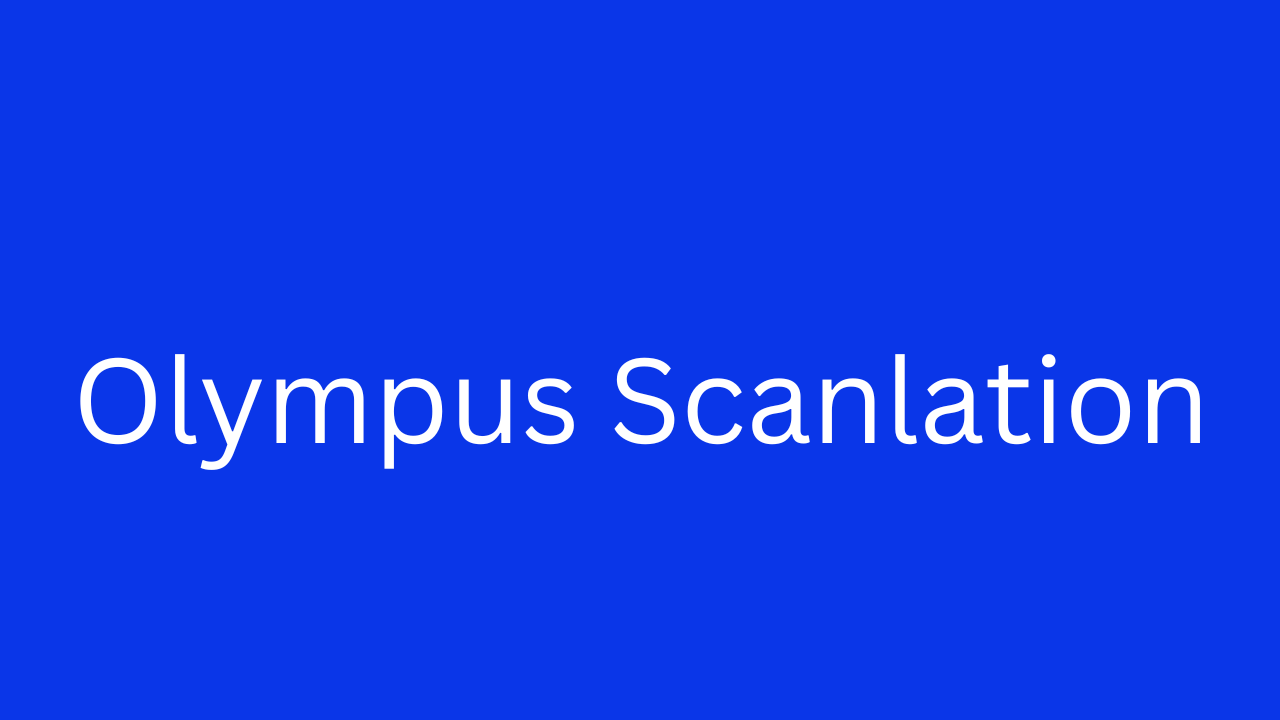Introduction
Manga enthusiasts around the world have witnessed a remarkable evolution in how they access their favorite stories. One name that stands out in this realm is Olympus Scanlation. But what exactly does it mean? Olympus Scanlation represents more than just a group of dedicated fans translating manga—it embodies a movement that has redefined our relationship with comics and storytelling from Japan.
In an age where globalization has made cultural exchange easier, scanlation groups like Olympus are bridging gaps between language barriers and making diverse narratives accessible to all. This blog post will delve into the significance of Olympus Scanlation, exploring its history, impact on the manga industry, advantages and controversies, as well as how fans can support quality translations while navigating legal alternatives for accessing their beloved titles. Join us on this journey through the fascinating world of manga scanlations!
The History and Evolution of Scanlation
Scanlation began in the late 1990s as fans sought to share their love for manga beyond language barriers. Early scanlators used basic technology, often relying on simple scans and rudimentary translations. These initial efforts were driven by passion rather than professionalism.
As demand grew, so did the quality of scanlations. Groups formed around skilled translators and artists who honed their craft. They utilized better software and techniques, creating polished products that rivaled official releases.
The internet played a crucial role in this evolution. Websites dedicated to hosting these translated works emerged, allowing easy access for fans worldwide. The community flourished, fostering collaboration among different groups.
However, with growth came challenges, including copyright concerns from publishers and creators. Despite this tension, many continue to advocate for scanlation as a way to introduce new audiences to captivating stories from Japan’s rich creative landscape.
The Role of Olympus Scanlation in the Manga Industry
Olympus Scanlation plays a pivotal role in the manga industry by bridging gaps left by official publishers. Many fans are eager to explore titles that haven’t been licensed in their regions. This is where scanlation groups step in, translating and sharing content with dedicated enthusiasts.
They help introduce new series to wider audiences, creating buzz around lesser-known works. As niche genres gain traction, Olympus Scanlation fosters community discussions and fan engagement like no other medium can.
Moreover, these projects can inspire official translations. Publishers often take note of what’s popular among scanned versions, leading them to license specific titles for broader distribution.
However, this influence comes with challenges. The delicate balance between fan-driven passion and copyright issues often puts scanlators at odds with creators’ rights. Understanding this dynamic is essential for anyone navigating the world of manga today.
Advantages and Controversies Surrounding Scanlation
Scanlation brings a wealth of benefits to the manga community. For fans around the world, it opens doors to content that might not be available in their region. This accessibility allows readers to enjoy new stories and art styles from diverse creators.
However, scanlation is not without its controversies. Many publishers argue that unauthorized translations can undermine sales. They believe these efforts infringe on copyright laws and harm original artists financially.
On the flip side, supporters argue that scanlation fosters interest in works that may otherwise go unnoticed. It acts as a bridge between cultures, introducing international audiences to Japanese storytelling.
The discussion continues as technology evolves. Scanlation groups often adapt quickly, showcasing popular titles before official releases hit shelves. Yet this dynamic creates tension within the industry regarding rights and recognition for creators behind beloved series.
How to Find and Support Quality Scanlation Groups
Finding quality scanlation groups can enhance your reading experience significantly. Start by exploring popular online forums and social media platforms dedicated to manga. Communities on Reddit or Discord often have recommendations for well-respected groups.
Check their websites for transparency in operations. Good scanlation teams will credit the original authors and artists, emphasizing respect for the source material. Their dedication to high-quality translations is also a telltale sign of professionalism.
Support these groups through donations if possible. Many rely on community funding to continue their work, as it helps cover costs related to hosting and translation tools.
Engaging with them via comments or sharing their releases can boost their visibility too. This interaction fosters a sense of community and encourages continuous improvement in quality standards within the scanlation world.
Alternative Ways to Access Manga Legally
There are various ways to enjoy manga legally, ensuring creators receive their due support. Subscription services like Crunchyroll and ComiXology offer vast libraries for avid readers. You can explore these platforms for instant access to popular titles.
Digital bookstores also provide a treasure trove of options. Platforms such as Kindle and Apple Books allow you to purchase individual volumes or series directly, often including the latest releases.
Public libraries have embraced digital lending too. Services like OverDrive let you borrow comics without any cost. This is an excellent way to discover new stories while supporting local resources.
Physical copies remain timeless treasures as well. Local comic shops often stock a diverse range of manga, helping you connect with fellow fans in your community.
Don’t forget about official websites that may host free chapters or promotional content to engage readers while promoting their work responsibly.
Conclusion: The Future of Olympus Scanlation and Its Impact on the Manga Community
The future of Olympus Scanlation remains a topic of vibrant discussion among manga enthusiasts and creators alike. As the digital landscape continues to evolve, scanlation groups like Olympus will likely adapt to new technologies and changing reader preferences. This adaptability could lead to even higher quality translations and faster releases.
With more readers turning to digital platforms, the demand for accessible content is on the rise. While some may argue that scanlations threaten official sales, they also serve as a bridge for international fans who might not otherwise have access to certain titles. In this way, Olympus Scanlation plays an integral role in introducing diverse narratives from Japan’s rich comic culture.
However, it’s essential that readers continue supporting legal avenues for accessing manga. By doing so, they ensure that artists and writers receive their due recognition and compensation. Quality scanlation can complement official releases but should never replace them entirely.
The impact of Olympus Scanlation on the manga community is undeniable. It fosters a sense of connection among fans around the globe while challenging traditional publishing norms. The ongoing dialogue between scanlators, publishers, and audiences will shape how we experience manga in years to come—ensuring that these stories remain vibrant and accessible across borders.











